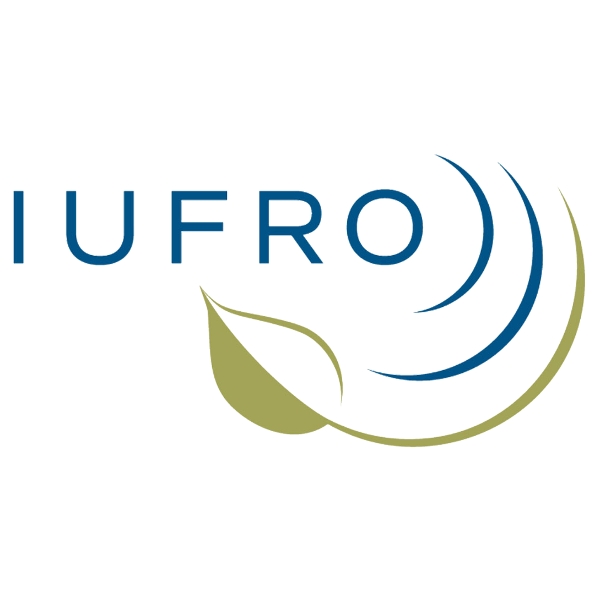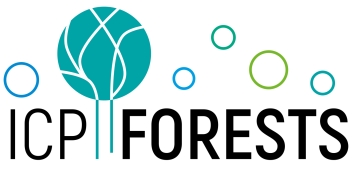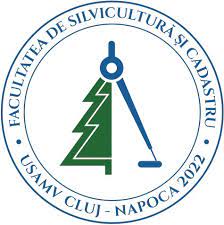Session 1:
Sustainable and adapted forest management to the socio-economic system
Sustainable Forest Management has been essential to maintain and meet the ecological, economic, and social-cultural functions of forests. Nevertheless, new demands, as well as new concepts, are emerging on forests and forest resources (e.g., circular bioeconomy, forest ecosystem services, climate-smart forestry, biodiversity-smart forestry, continuous cover forestry, etc.), while adaptation to future environmental conditions and risks is becoming an urgent issue and a challenge for the forest-wood sector. Hence, nowadays, there is a strong necessity for adaptive, sustainable forest management and for forest restoration, to strengthen the resilience of EU forests to make forests adapted to climate change, to maintain their ecological and socio-economic importance. In this respect, the successful implementation of the ambitious agreements, frameworks, goals, and targets at European and national level calls for high-quality, up-to-date scientific achievements and innovation drawing on the best expertise. A special challenge for the scientific community is to contribute to a better and integrated understanding of the interconnected and multifunctional problems associated with forests, and, together with the stakeholders, to support more effective and durable solutions. Forest scientists can contribute to find practical solutions in order to respond to the major challenges of society and foster the relationship among scientists, stakeholders, and policy makers. The session at the Conference will address these important issues, calling for contribution of forest scientists, forest managers and other stakeholders, at national and European level
Giorgio Matteucci - Italian National Research Council
Rastislav Raši - National Forest Centre Slovakia
Session 2:
Climate change and air pollution effects on forest ecosystems status
Air pollution and climate change have become a global dimension problem. In the past, many of the hypotheses on causes of forest damage were associated with influence of air pollution. Now it is clear that air pollution is not acting as the only stressor on forests but climate change should be also taken into account. Air pollution and climate change have major impacts on and complex interactions with forest health and productivity; tropospheric ozone (O3), which is both a phytotoxic gas and a radiative forcer, nitrogen deposition, which causes forest decline due to acidification, and changes in the frequency and intensity of climatic extremes (e.g., heat waves, rainfall, wind storms), may impact the structure, composition and functioning of forest ecosystems. These impacts can directly influence carbon cycling and its feedback to the climate system as well as biodiversity conservation. Although it is an integral part of global change, most of the research addressing the effects of climate change on forests, including urban forests, have overlooked the role of environmental pollution. Similarly, most studies investigating effects of air pollutants on forests have generally neglected impacts of climate change. Such an integrated approach is essential for the large-scale integration of long-term continuous research and monitoring systems and, respectively, for the integrated analysis of information and results, while at the same time adapting appropriate knowledge transfer mechanisms to the users.
Elena Paoletti - International Union of Forest Research Organizations
Alessandra de Marco - International Union of Forest Research Organizations
Session 3:
Forest protection, conservation and enhancement of biodiversity, functions, and socio-economic services provided by forests
Forests are dominating terrestrial ecosystems and provide essential products for human use. Global climate and land-use change results in natural disturbances and fragmentation threatening the health and productivity of forest ecosystems. On the other hand, forest tree populations have evolved efficient mechanisms to adapt to variable environmental conditions and extreme events. The level of genetic variation and phenotypic plasticity, but also biotic interactions, past environmental conditions (legacy effects) and silvicultural practices influence forest resilience in the face of climate and land-use change. For long-term evolutionary adaptation and tree improvement, adaptive genetic variation is essential. Forest genomics and biotechnological applications have great potential to increase productivity and resilience of forests against abiotic and biotic stressors and to guide management and conservation strategies. In this session we welcome contributions focusing on novel molecular and quantitative genetic approaches to address the urgent issue of forests’ adaptation to climate change in natural and highly fragmented landscapes.
Session 4:
Improving and preserving the genetic diversity of forests
Forests provide ecosystem services that are key for people and the planet. These are critical habitats for biodiversity, including many species that are essential for the provision of a wide range of ecosystem services, including those monetary and non-monetary goods that are important to enhance human well-being. The available scientific knowledge showed the synergies and trade-offs among biodiversity and the different ecosystem services, and put in evidence that biodiversity greatly contributes to forest protection against negative action of disturbing factors (biotic, abiotic, fires, anthropic etc.) and functioning of different ecosystem processes. In this session, we want to provide scientific evidences about the relationships between forest biodiversity and ecosystem multifunctionality, comparing the main outputs of different long-term studies that include ecosystem processes, functions and services. We will emphasize the socio-economic services provided by forests in the framework of the new forest management proposals (e.g., biomass production, habitat provisioning services, pollination, etc.).
Oliver Gailing - University of Göttingen, Forest Genetics and Forest Tree Breeding
Session 5:
Wildlife conservation and management
The aim of the section is to bring together all those active in wildlife research and management to meet and discuss challenging issues in wildlife ecology in a broad sense with the purpose of conservation, sustainable use, or control of wildlife and its habitats. The section intends to bring different modern technics (genetics, GIS, camera traps, etc.) and disciplines together, to handle wildlife diseases, to mitigate conflicts and to successfully implement new knowledge into management and policy. We welcome theoretical, empirical, and practical presentations from all areas of wildlife science, including social sciences and human dimensions of wildlife, with the primary task of creating the scientific basis for the enhancement of wildlife management and conservation practices. Management of the species of community interest, reintroduction of species and habitat rehabilitation, connectivity, large carnivore conflicts, management of herbivores, zoning, are just some of the topics relevant for this section.
András Náhlik- Soproni Egyetem Institute Of Wildlife Management And Wildlife Biology
Ovidiu Ionescu - Transilvania University, Faculty of Forestry
Session 6:
Policy, science, and practice together in the field of forest on pan-European scale - dedicated to ForestValue2 Project
In the new EU Forest Strategy, the European Commission invites all stakeholders to engage in a broad debate on the future of EU forests. When it comes to these debates, issues around circular bioeconomy, biodiversity and climate change are a pressing concern today. As you work through this session, you will learn about new ways how to make a change with forest research to breed life into the Green Deal and SDGs.
Mika Kallio - Ministry of Agriculture and Forestry Finland
Andreas Nikolaus Kleinschmit von Lengefeld - Homo Silvestris Europae
Session 7:
Impacts of multiple factors on forest ecosystems: risk assessment, modelling and detection methods
Forests are exposed to a myriad of stressor from biotic and abiotic origin that varies in space and time. The effects of such stressors are often triggered by extreme weather condition linked to climate change, and can have impact at different spatial, temporal and ecological scales. At the same time, there is an augmented demand for data and information on status, changes and possible future trajectories of forest condition to inform policy and decision-making processes. This situation creates expectation for solutions with respect to risk assessment, modelling and detection methods. Submission for this session should ideally present up-to-date research results, reviews and emerging concept in the three mentioned field (risk assessment, modelling and detection methods), as well as integrative studies among the three. The geographical scope can be from local (provided a link to a more general context is ensured) to global, and from experiments to field observational studies, including forest inventories and forest monitoring.
Tănase Mihai - University of Alcalá, Department of Geology, Geography and Environment






















